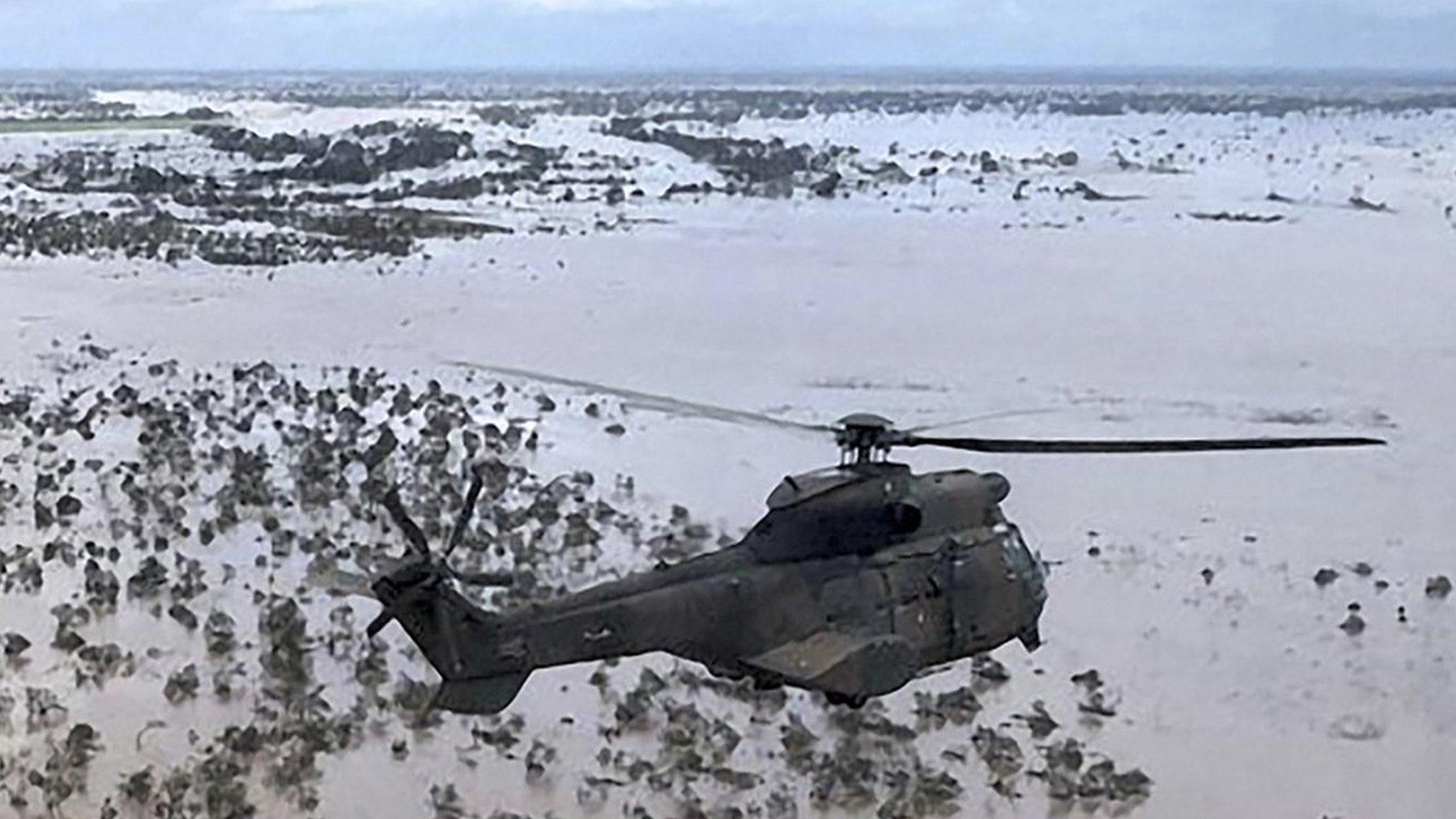Cyclone Kenneth: Flooding feared as heavy rains hit Mozambique
- Published
Eyewitness captures moment Kenneth hits northern Mozambique
A powerful cyclone has smashed into Mozambique, flattening thousands of homes and flooding low-lying areas.
Cyclone Kenneth struck with winds of 220km/h (140mph) barely a month after a previous cyclone killed hundreds and devastated large areas.
Heavy rain continued to fall on Friday, raising fears of more floods.
Authorities have advised people to move to higher ground amid concern that thousands may be trapped in remote villages.
Mozambique was still recovering from Cyclone Idai, which killed more than 900 people across three countries in March.
Cyclone Kenneth had already killed three people on the island nation of Comoros. At least one person has been reported dead in Mozambique after being crushed by a falling tree.
UN weather experts say it is unprecedented for two cyclones of such intensity to hit Mozambique in the same season.
The World Meteorological Organisation (WMO) also said that no previous records show a cyclone striking the region as far north as Kenneth.
It said a fact-finding mission would examine the "impact of climate change and sea-level rise on Mozambique's resilience" to extreme weather.
What's the latest?
Winds eased on Friday, but France's meteorological agency said up to 800mm of rain was expected to land on Mozambique over coming days.
Aid agencies say they are concerned about communities prone to flooding and landslides.
The level of expected rainfall is nearly double the 10-day accumulated rainfall that caused devastating flooding in the port city of Beira, further south, during Cyclone Idai.
The UN's World Food Programme said it was working on an "emergency preparedness plan" with the Mozambican government and other humanitarian groups.
Mozambique's National Institute of Disaster Management (INGC) said 30,000 people had been evacuated from affected areas, and reports from northern Mozambique said many homes had collapsed and the provincial capital of Pemba had lost its power supply.
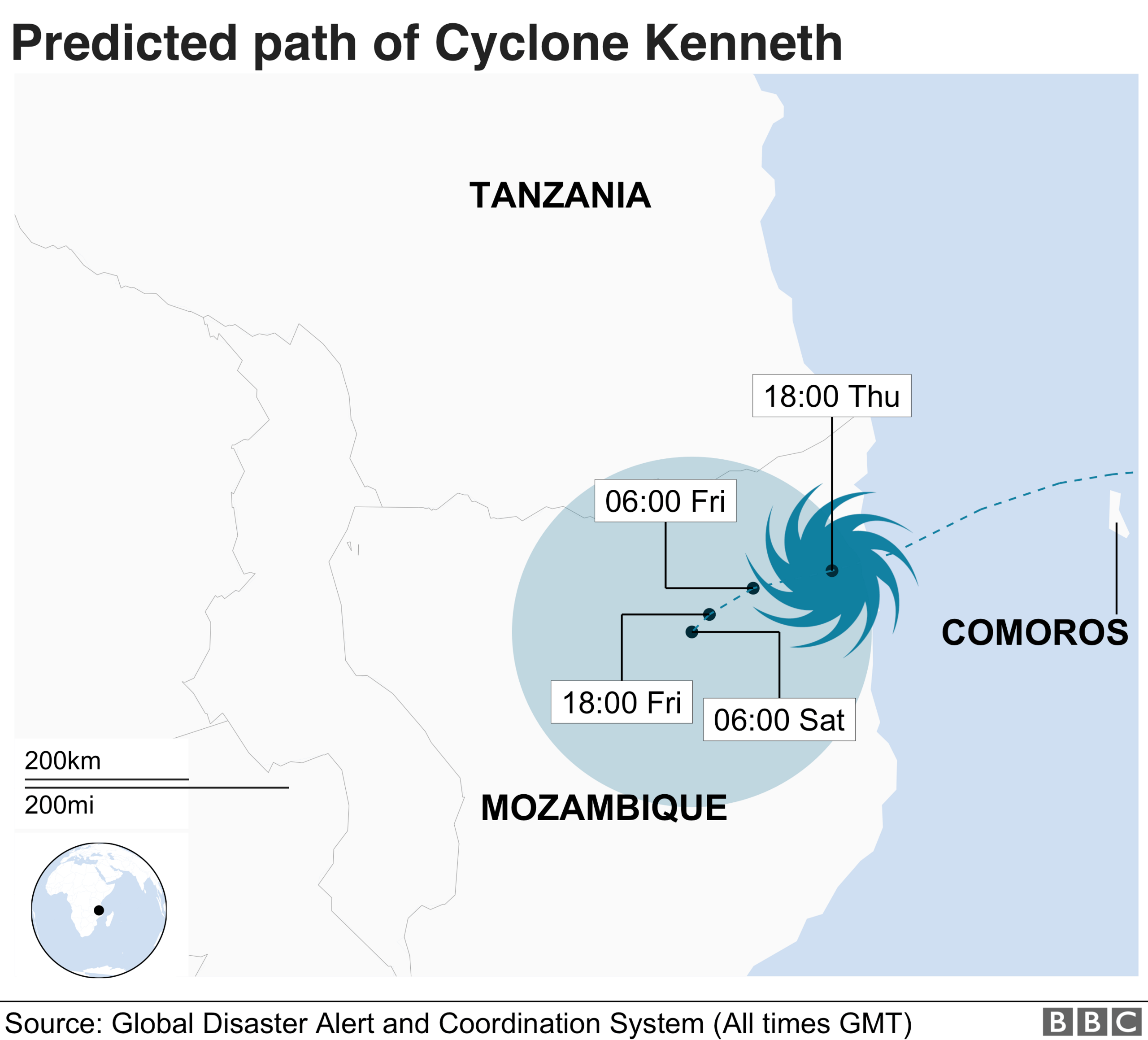

Kenneth made landfall on Mozambique's northern province of Cabo Delgado on Thursday evening, with wind speeds equivalent to a category four hurricane. Communications with the affected areas were disrupted, obscuring the full extent of the damage.
Thousands remain away from their homes after compulsory evacuation procedures were put in place by authorities.
What is the affected area like?
Cabo Delgado province is not as densely populated as the area hit by Cyclone Idai, and there is apparently more high ground there.
That, in addition to warnings by authorities ahead of the storm, could significantly stem losses compared with Cyclone Idai.
But reports said many thousands of homes had been flattened by the winds, and the area has been hit by militant Islamist violence in recent months, which could complicate humanitarian operations.
Thousands of people had already fled their homes to seek shelter from violence in camps for displaced people.
What about other countries in the region?
Comoros is still reeling from damage caused by the cyclone, which battered the islands with high winds and heavy rains. The winds have caused widespread power outages and damage to homes.
In some southern areas of neighbouring Tanzania, authorities have ordered schools and businesses to close.
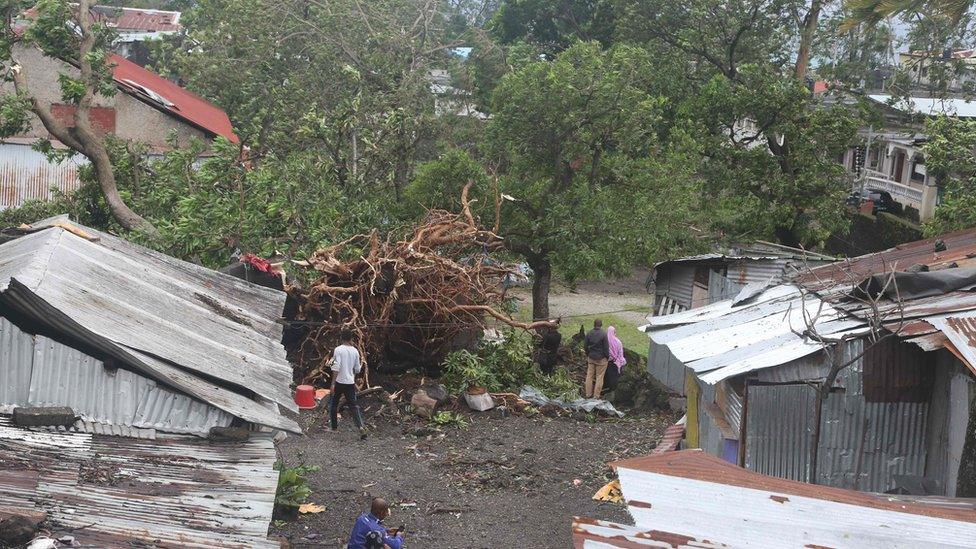
Cyclone Kenneth has already devastated areas of the island nation of Comoros
Residents in the southern Tanzanian town of Mtwara were earlier told to seek higher ground and shelter, but that warning was stood down.
The International Federation of Red Cross and Red Crescent Societies shared images of the damage on social media. In a tweet, the group confirmed it had volunteers on the ground assisting communities.
Allow X content?
This article contains content provided by X. We ask for your permission before anything is loaded, as they may be using cookies and other technologies. You may want to read X’s cookie policy, external and privacy policy, external before accepting. To view this content choose ‘accept and continue’.

Despite Zimbabwe being further inland, officials there say they are also putting their disaster management agencies on alert.
"Drawing lessons from Cyclone Idai we cannot take chances any more," said Department of Civil Protection director Nathan Nkomo.

Are you in the area? What are conditions like at the moment? Email haveyoursay@bbc.co.uk, external
Please include a contact number if you are willing to speak to a BBC journalist. You can also contact us in the following ways:
WhatsApp: +44 7555 173285
Tweet: @BBC_HaveYourSay, external
Send pictures/video to yourpics@bbc.co.uk, external
Text an SMS or MMS to 61124 or +44 7624 800 100
Please read our terms of use and privacy policy
- Published24 March 2019
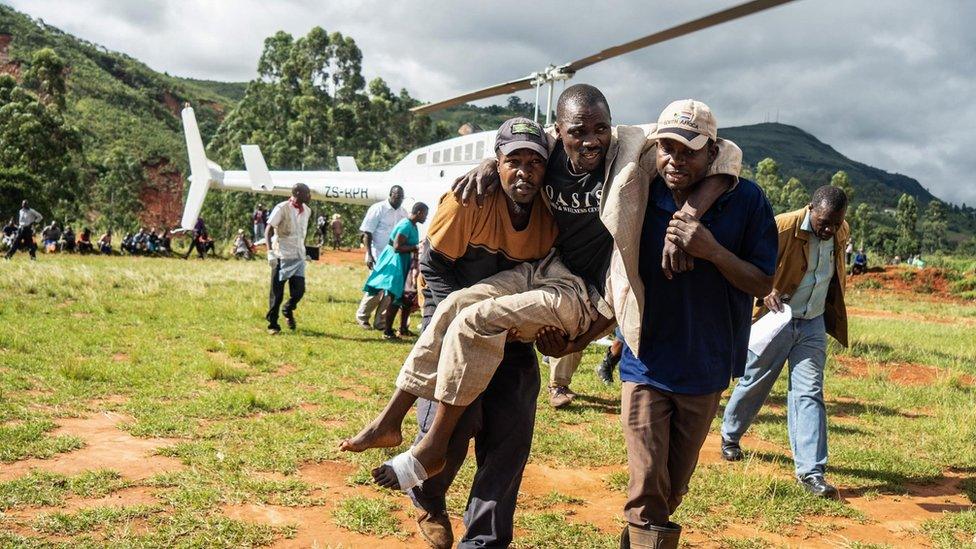
- Published20 March 2019
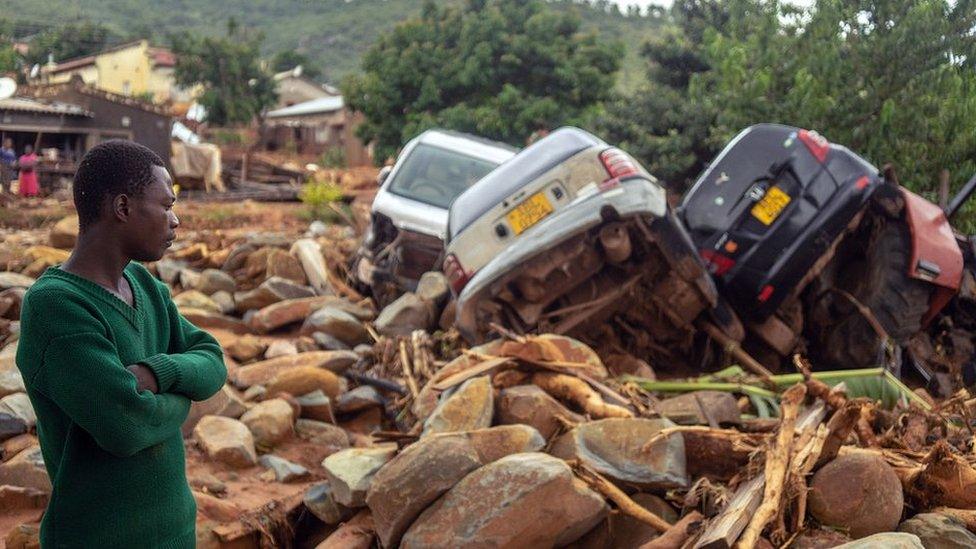
- Published20 March 2019
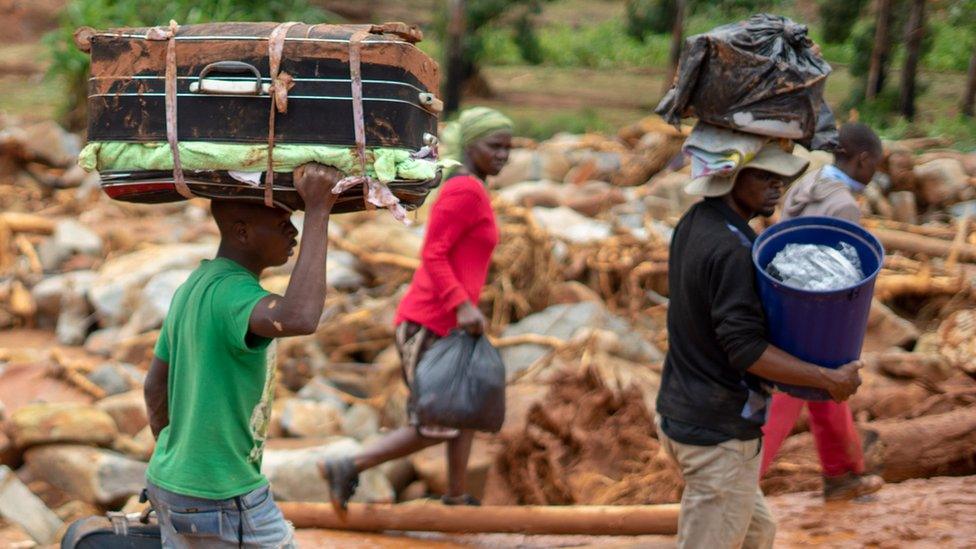
- Published20 March 2019
